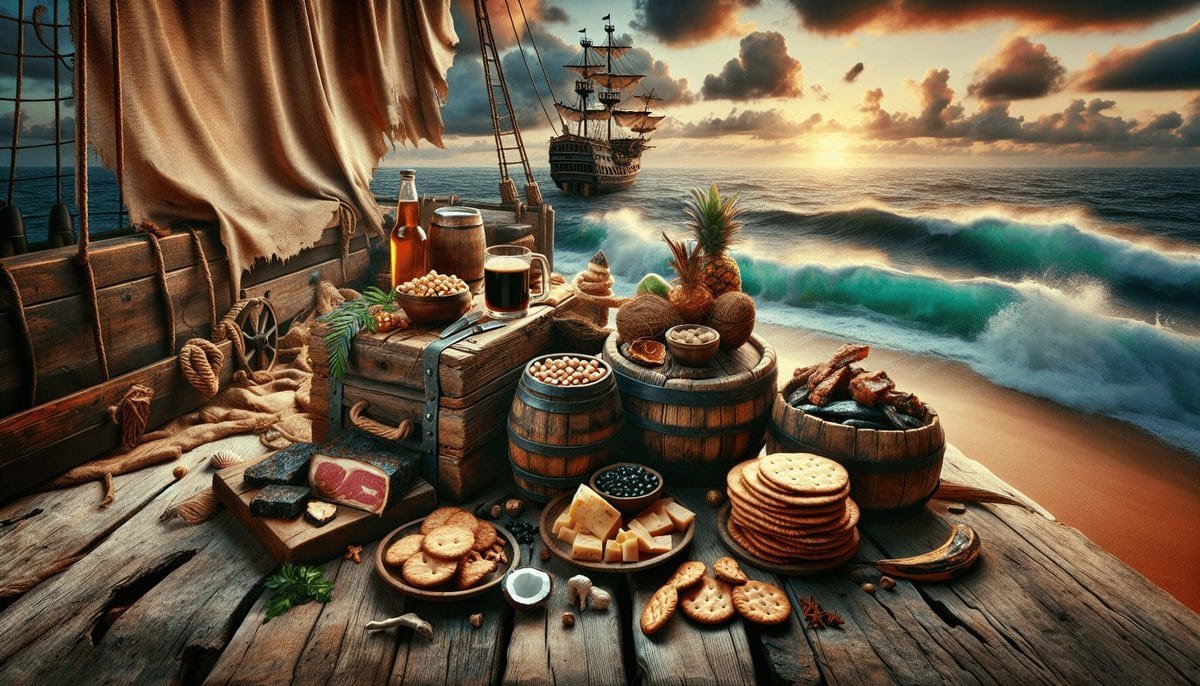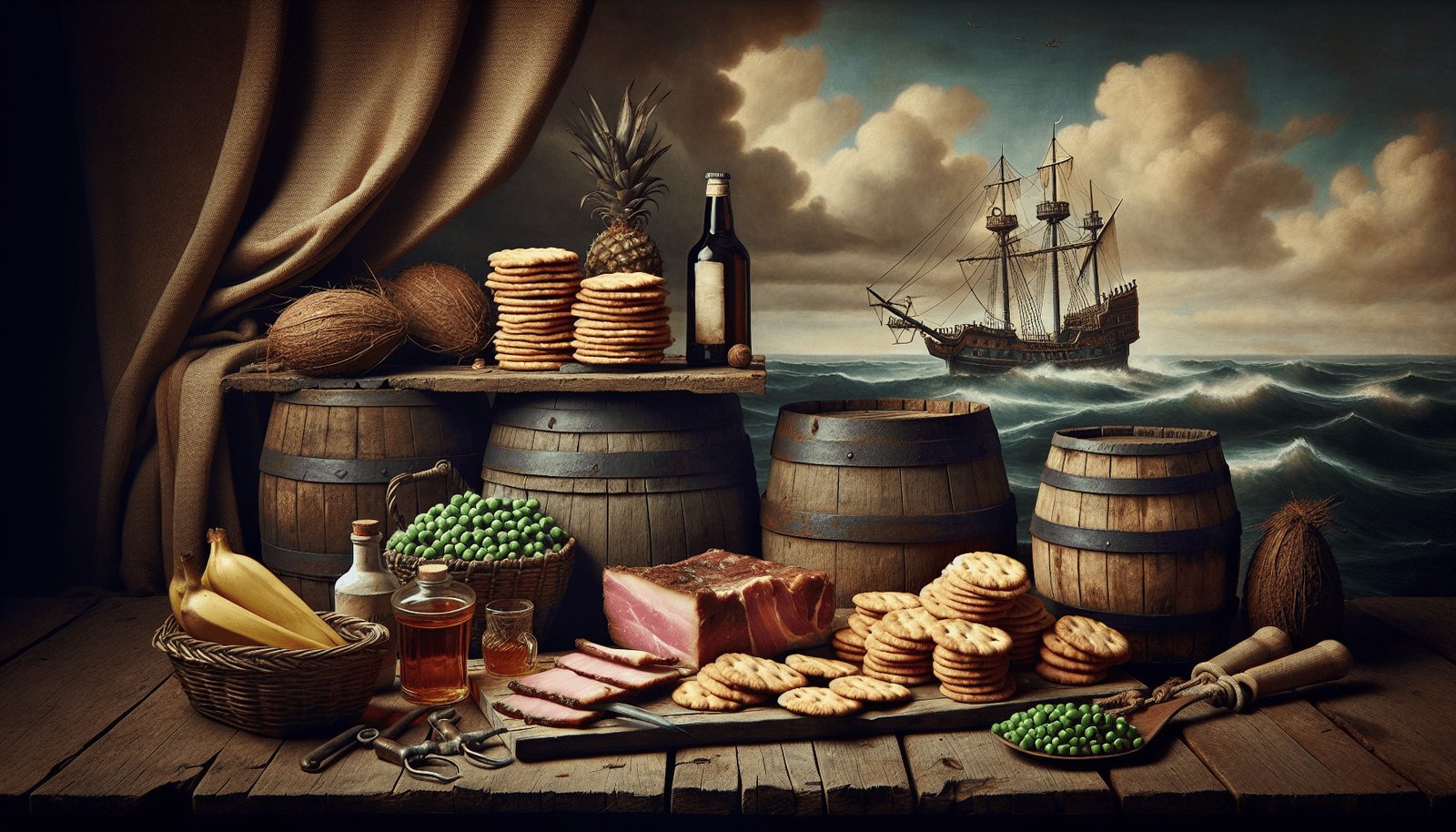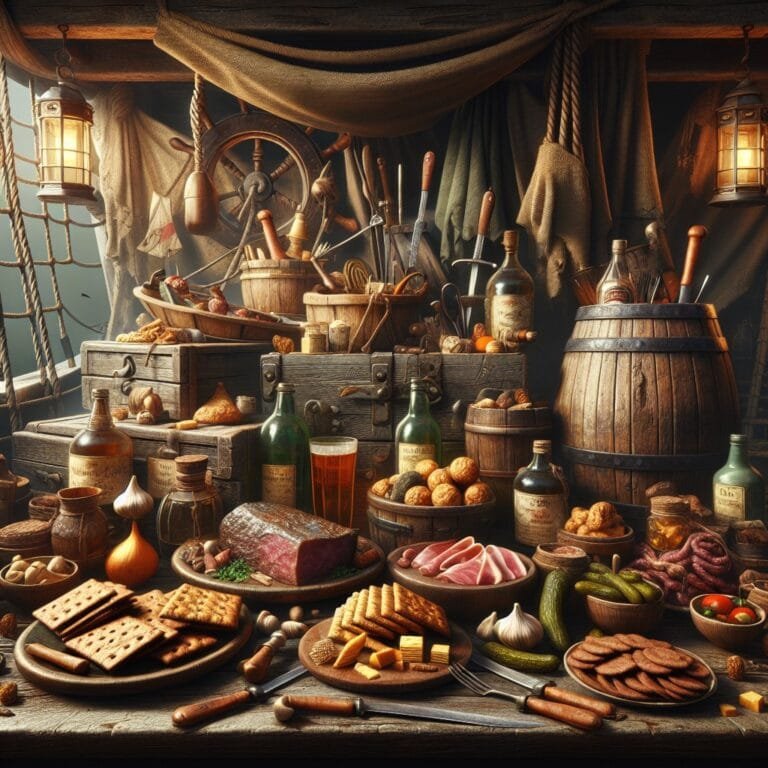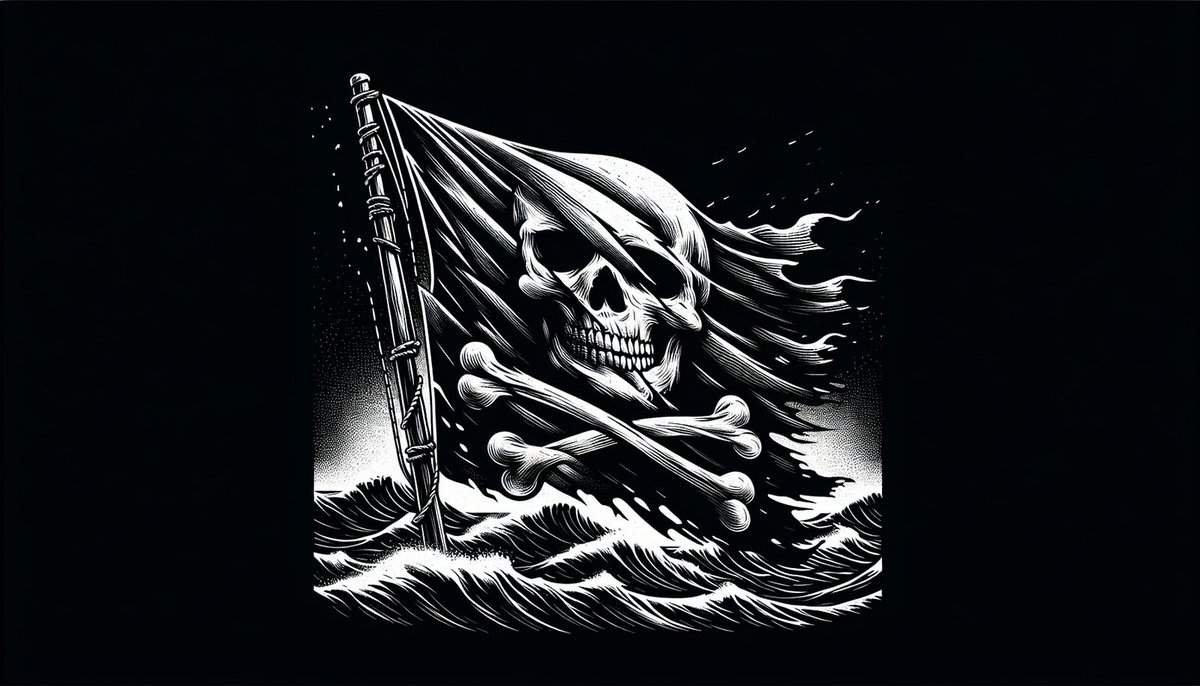Have you ever wondered what pirates used to eat on their long sea voyages? No? Well, too bad because I’m about to tell you anyway. And spoiler alert: it wasn’t all rum and grog. Let’s get into the dirty details of what these scallywags actually munched on while they roamed the high seas ducking cannonballs and laws.

The Initial Joy: Fresh Provisions
Meat and Veggies (While They Lasted)
Imagine setting sail with barrels of fresh meat, fish, and vegetables. You know, all that nutritious stuff your mom begged you to eat. At the start, pirates were living the high life. Heck, they might even have a little picnic on the deck—kidding, pirates don’t picnic. But yeah, they had a decent spread to begin with. The only catch? It didn’t last long.
The Spoilage Dilemma
Oh, sweet child, do you think those barrels stayed fresh in the unforgiving sea sun? Picture this: a week in, and the veggies are starting to look like something you’d scrape off your shoe. Meat? That turns into a festering mess quicker than you can say “Arrr!” The romance of fresh provisions quickly died, leaving pirates to dream of those leafy greens they stubbornly avoided back home.
The Descent: Hardtack and Salted Meat
The Biscuit That Could Break Your Teeth
So, what happens when the gourmet stuff rots away? Enter hardtack—a delightful little brick commonly known as pilot bread. Think of it as a bloated cracker who took weightlifting way too seriously. Hardtack was the ultimate pirate diet staple. Why? Because every other organism on earth wouldn’t touch it—including bacteria. Let’s be honest, though; you could probably use it to build a house or knock out a rival sailor.
Salted Meat: The Sodium Overdose
Then there’s salted meat. No, this isn’t the kind that shows up on a fancy charcuterie board. This is meat soaked in so much salt, it looked like it was trying to prove a point. It was chewy, stringy, and basically, a cardiovascular event waiting to happen. But hey, it didn’t spoil! That’s the beauty of salt—it makes everything taste like regret but keeps it edible.
The Liquid Courage: Alcohol and Its Role
Grog: The Pirate’s Elixir
You’ve probably heard that pirates loved their rum. Well, surprise, the legends are true. Pirates mixed rum with water to make grog. ‘Cause you know, pirates were nothing if not inventive in their quest to get drunk. Plus, mixing it with water helped keep away diseases from that murky sea water they had to drink. Downsides? Let’s just say it wasn’t exactly a health tonic.
Beer: Because Hydration Matters
Sometimes, beer was also an option. Yeah, because when fresh water’s in short supply, why not just resort to beer? It was safer than contaminated water. That was their excuse, anyway. I think they were just looking for any reason to get tipsy while dodging cannon fire.
Desperation Mode: The Real Gross Stuff
Leather Stew: Yes, You Read That Right
If you think things couldn’t get worse, think again. When all else failed, pirates turned to eating leather. Belts, boots, whatever had skin on it was fair game. They’d boil bits of leather into a stew that was as appetizing as it sounds. So if you thought your takeout order was bad the other night, at least you weren’t gnawing on leather straps.
Vermin: The Unofficial Deck Snack
And let’s not forget the rats. Yes, pirates ate rats. When you’re out of everything, the last thing you’ll turn to is these cute little furballs scampering around your feet. Desperate times call for desperate measures—and no hungry pirate would turn their nose up at rodent-on-stick.
Cannibalism: Crossing The Line
Pirates weren’t always strangers to cannibalism in the most extreme conditions. Maybe they shouldn’t have thrown all those nutrition bars overboard in a fit of plundering glory, huh? Let’s just say you wouldn’t want to be the weakest link on a crumb-starved ship.

Modern-Day Comparisons: Health Nut Meets Pirate
Keto Diet: Pirates Were Unintentional Pioneers
Move aside, keto enthusiasts. Pirates did it first. Tons of meat (okay, mostly salted) and very little carbs, unless you count those gut-busting hardtacks. Any health nut on board would go crazy with joy before realizing that “health” wasn’t synonymous with scurvy prevention.
Intermittent Fasting: Pirates as Trendsetters
Fasting was less of a choice and more of a cruel joke for pirates. Meals were irregular, if not outright scarce. You could say pirates were the original intermittent fasters. Only instead of Instagramming their results, they probably used their last breath to curse the sea gods.
The Human Side: Surviving the Unthinkable
Laughs Amidst the Horrors
You can imagine pirates had to have a dark sense of humor to cope with their diet. Picture the gallows humor as they chomped down on their umpteenth piece of hardtack or eyed their leather boots like they were Michelin-star entrees. It’s like if your worst day was every day, only with more cannons and fewer bathrooms.
Brotherhood Through Misery
Eating this kind of diet probably helped forge stronger bonds among pirates. Misery loves company. Laughing about your mutual misery makes it slightly more bearable. And let’s get real—nothing quite strengthens friendship like facing the shared horror of a rat-sized dinner menu.
Conclusion: The Legacy of Pirate Snacks
So there you have it. Next time you dream of the pirate life, remember what their snack cupboard really looked like. Fresh fruits and vegetables replaced by moldy biscuits, and wouldn’t-touch-it-by-choice meats became the norm. Throw in some rat and leather for good measure, and you’ve got your pirate diet.
“Arrr, me matey, pass the salt” has a whole new meaning now, doesn’t it? While pirates captured treasure and lived lives of chaotic adventure, their diet was a reality check—a gritty reminder that all the rum in the world couldn’t mask the taste of salted regret.
So if you think you’re tough for braving the latest food trend, just remember: months at sea with only hardtack and rat stew would make you wish you were back to kale smoothies and quinoa bowls. Here’s to you, scallywags—may your nutritional legacy be as absurd and darkly entertaining as your escapades.










